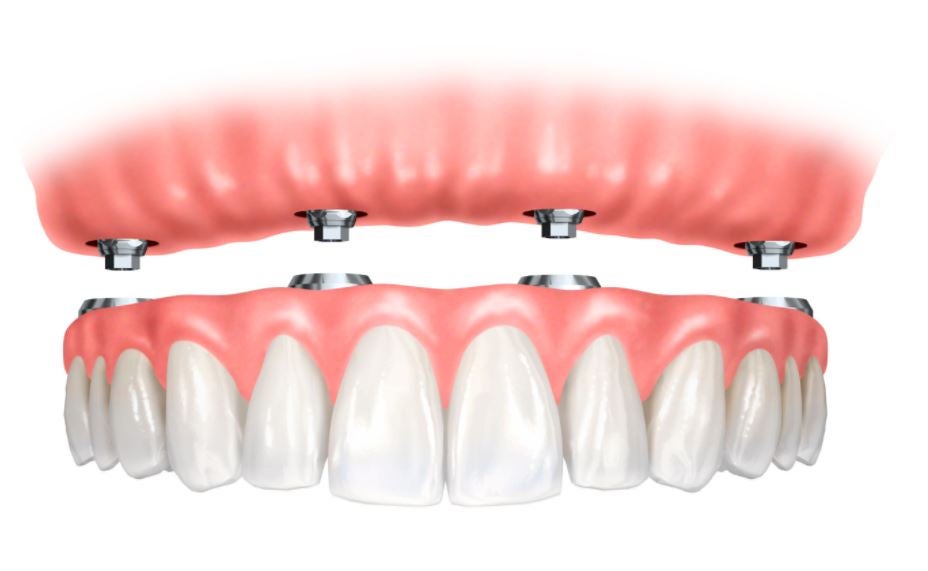Dental Sense Can Be Fun For Everyone
Dental Sense Can Be Fun For Everyone
Blog Article
How Dental Sense can Save You Time, Stress, and Money.
Table of ContentsDental Sense Fundamentals ExplainedSome Known Questions About Dental Sense.The 6-Second Trick For Dental Sense3 Easy Facts About Dental Sense Explained
are medical tools operatively implanted into the jaw to bring back a person's capacity to chew or their appearance. They offer support for artificial (fake) teeth, such as crowns, bridges, or dentures. When a tooth is lost due to injury or illness, a person can experience difficulties such as quick bone loss, malfunctioning speech, or adjustments to eating patterns that result in discomfort.Oral implant systems contain a dental implant body and oral implant abutment and may additionally include a joint fixation screw. Wisdom tooth cavity. The dental implant body is surgically put in the jawbone in area of the tooth's root. The oral implant abutment is usually connected to the implant body by the abutment fixation screw and extends with gums right into the mouth to support the affixed man-made teeth
(https://zenwriting.net/dentalsense1/nnlwgn0f4v)Framework of The Dental Implant System choosing dental implants, talk to your oral provider concerning the possible advantages and threats, and whether you are a prospect for the treatment. Points to take into consideration: Your general wellness is an essential factor in identifying whether you are a good prospect for dental implants, for how long it will take to heal, and for how long the implant might remain in area.
Smoking might impact the healing procedure and lower the lasting success of the implant. The recovery process for the dental implant body may take numerous months or longer, during which time you usually have a momentary abutment instead of the tooth. the dental implant procedure: Carefully adhere to the dental health directions given to you by your dental provider.
Some Ideas on Dental Sense You Should Know
Implant failure can lead to the demand for one more procedure to take care of or change the dental implant system. Restores the capability to eat Recovers aesthetic appearance Helps keep the jawbone from reducing due to bone loss Preserves the health and wellness of the bordering bone and gums Aids keep nearby (neighboring) teeth secure Improves lifestyle Damage to bordering all-natural teeth throughout implant positioning Injury to the surrounding cells during surgical treatment, such as sinus opening Injury throughout surgical procedure (for example, crack of bordering jawbone) Poor function, such as feeling like the teeth do not bite together typically A feeling that the tooth hangs or turning in position resulting from an abutment screw loosening Implant body failing (looseness of the implant body) due to systemic infection, which might be a lot more most likely in individuals with unrestrained diabetes mellitus as a result of neighborhood infection in bone and gum tissues sustaining the implant body because of delayed recovery, which may be most likely in patients who smoke Difficulty cleansing the gums around the dental implant, causing bad oral health Unattended periodontal condition Post-surgical feeling numb because of nerve impingement or damage Always notify healthcare suppliers and imaging service technicians that you have dental implants prior to any type of magnetic resonance imaging (MRI) or x-ray procedures.
FDA is not mindful of any type of unfavorable occasions reported for MRI or x-ray procedures with oral implants. Dental implants systems are typically constructed from products that adhere to international agreement criteria of the International Organization for Standardization (ISO) or ASTM International. These criteria have details of what makes a safe product.

An oral implant is a framework that changes a missing out on tooth. With screw-like devices, the cosmetic surgeon inserts a dental implant into the jawbone, and it serves as a support for an artificial tooth, called a crown. A device called an abutment connects the synthetic tooth to the dental implant. The crown is customized to fit the person's mouth and match the shade of their teeth.
The Dental Sense Ideas
Some individuals are not qualified for dental implant surgery. It is for dental doctors to run on people with: acute illnessuncontrollable metabolic diseasebone or soft tissue illness or infectionIf these problems are fixed, a person can have the surgical procedure. In, oral cosmetic surgeons avoid running on individuals with: If individuals with any one of the above go through dental implant surgery, there is a higher risk of the dental implant failing.

Oral implant surgery is a customized process. Offer you time to recover. Connect the post and last crown, bridge or denture.
Next, your doctor will very carefully place the dental implant into your jaw. Finally, your doctor will certainly reposition your gums and shut the incision with stitches. If your dental implant is More Help near the front of your mouth, your dental practitioner will certainly make a momentary tooth for you to use till you recover. By doing this, you won't have a gap in your smile while you recuperate.
The Basic Principles Of Dental Sense
Throughout the healing phase, your jawbone must fuse to the oral implant. This procedure can take anywhere from three to nine months.
Once your dental implant heals, your dental practitioner can attach the joint (tiny port post) and your last remediation (crown, bridge or denture). This typically takes regarding one hour to finish and may need a 2nd small surgery. You shouldn't feel any kind of pain during your dental implant procedure because your supplier will utilize medicine to numb your gums.
Report this page